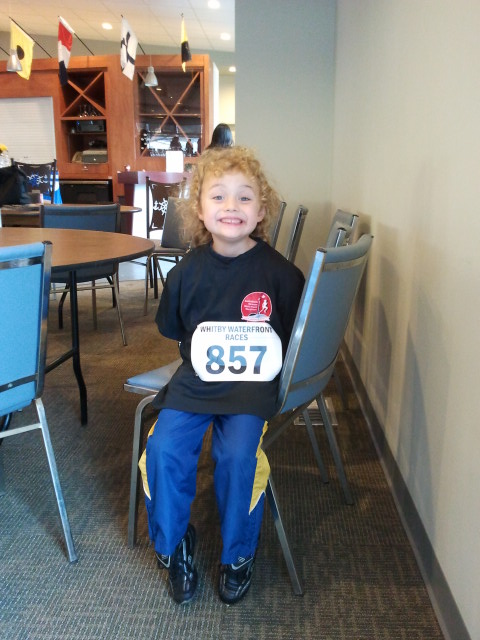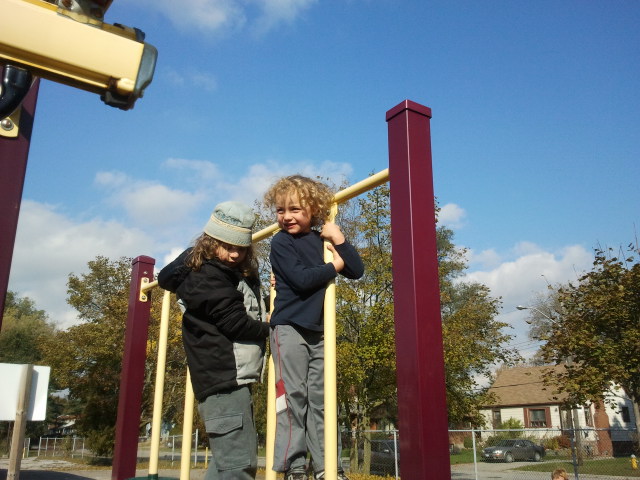Today I want to tell you a story about a dog, or rather, a cat who thought she was a dog.
Her name was Tushka and she was a black tabby. She came into our family when I was so young that I cannot remember her arrival. At that time, we also had two big “pavement special” dogs named Judge and Kentucky, a fat Fox Terrier whose name was Bianca but who everyone referred to as “The Bionic Watermelon”, a neurotically insane Fox Terrier named Twiggy, Megan the Siamese cat, and a hamster named Antoine.
Tushka was intended to be a companion for Megan, but while she didn’t exactly shun Megan, she definitely identified more with the dogs. At animal feeding time in the kitchen, my mom would always put the cats in one corner and the dogs way over on the other side. Tushka would neatly use her front legs to push her bowl across the kitchen floor until it was among the dogs. She would eat her meal there, surrounded by slobbering canines, while poor Megan ate by herself.
At the time, we were living in the Cape Town suburb of Tokai. Our house was across the road from the Tokai Forest, which was a popular dog-walking spot. On Saturdays, we would put the dogs onto leashes and venture out into the forest, where we would let them loose to romp around. We were always accompanied on our walks by Tushka. She would romp right along with the dogs, who seemed to accept her as one of them.
She even had a dog-like temperament. Oh sure, she did the odd cat thing, like purring and climbing trees. But she lacked the aloofness often displayed by cats, she always came when you called her name, she rushed around like an overexcited puppy, played with the dogs, and I swear she wagged her tail when she was happy. She was loving and loyal.
Megan was also loving and loyal, I’m not saying she wasn’t, but she was loving and loyal in a cat kind of way. Tushka was loving and loyal in the same way the dogs were. She would jump onto my bed in the mornings and lick my face with doglike enthusiasm.
By the time Tushka was about ten years old, we were living on the outskirts of Johannesburg. Several of the animals had moved onto higher plains, including Antoine the hamster and my beloved cat Megan, but Tushka still remained. One summer, we went on a family vacation to the coastal town of Ramsgate. We took our little dogs with us: Twiggy and The Bionic Watermelon were long gone, but we had another Fox Terrier and a wiener dog. Tushka stayed home with a new generation of cats and the two big dogs we had at the time. My cousin, who had a special bond with all of the animals, house-sat during our absence.
This was all in the day before cell-phones and the Internet, so when you went on vacation, you were pretty much out of circulation. You called home once a week to make sure everything was OK, but beyond that, there was no contact. Looking back, I wonder how that vacation would have turned out if we had had email or Facebook.
As it was, we arrived home after the vacation to find my cousin in tears (and this is not a gal who cries easily).
“Tushka’s missing,” she sobbed.
Our dog-cat had wandered into the yard after being fed three days previously, just as she always did. That was the last anyone saw of her. Ads were placed in newspapers, signs were taped to telephone poles, vets were notified, rewards were offered. With the help of the neighbours, we searched every inch of every yard on our street. We spent weeks scouring the banks of the river opposite our house.
No trace of Tushka was ever found. To this day, we don’t know what happened to her.
She is no doubt romping around somewhere in Dog Heaven. Because that’s where she belongs.
This week’s Indie Ink Challenge came from Head Ant, who gave me this prompt:Write a standalone, original piece on a lost dog.
I challenged Supermaren with the prompt:Write a story that includes an old copy of “Macbeth”, a strand of long blonde hair, and a footprint from a man’s boot.














